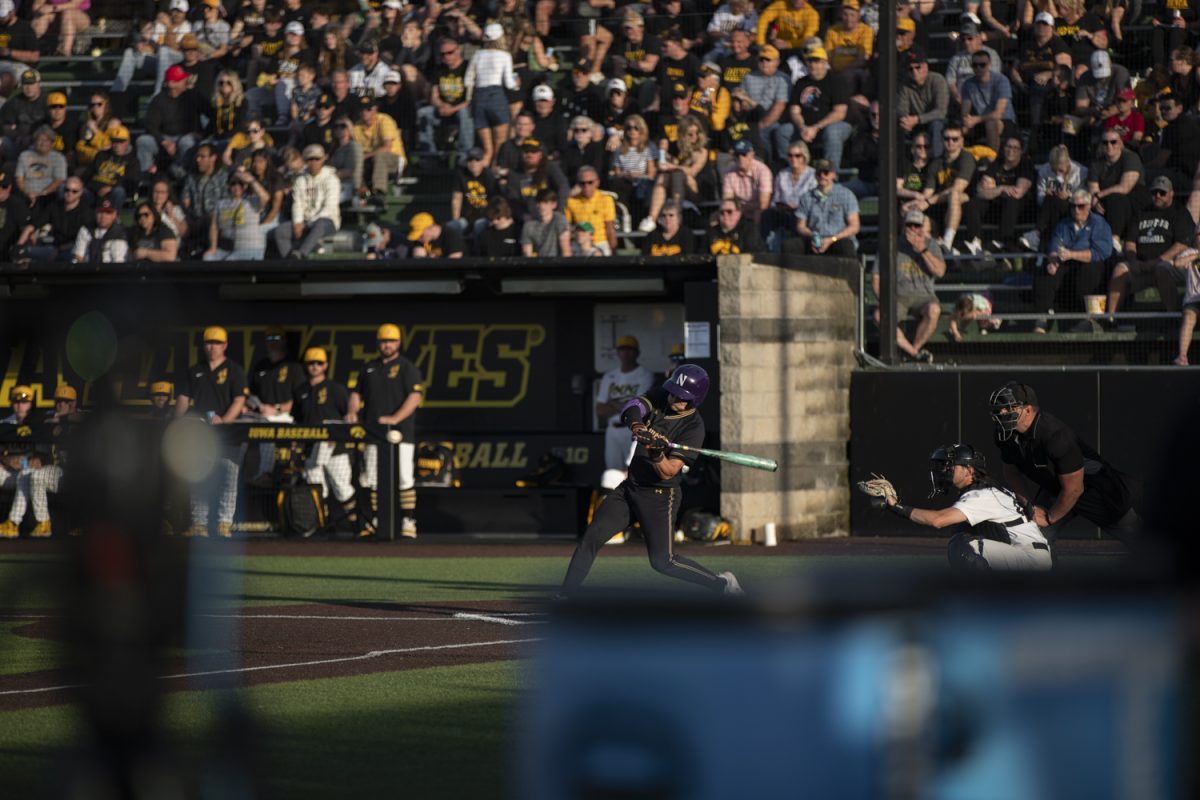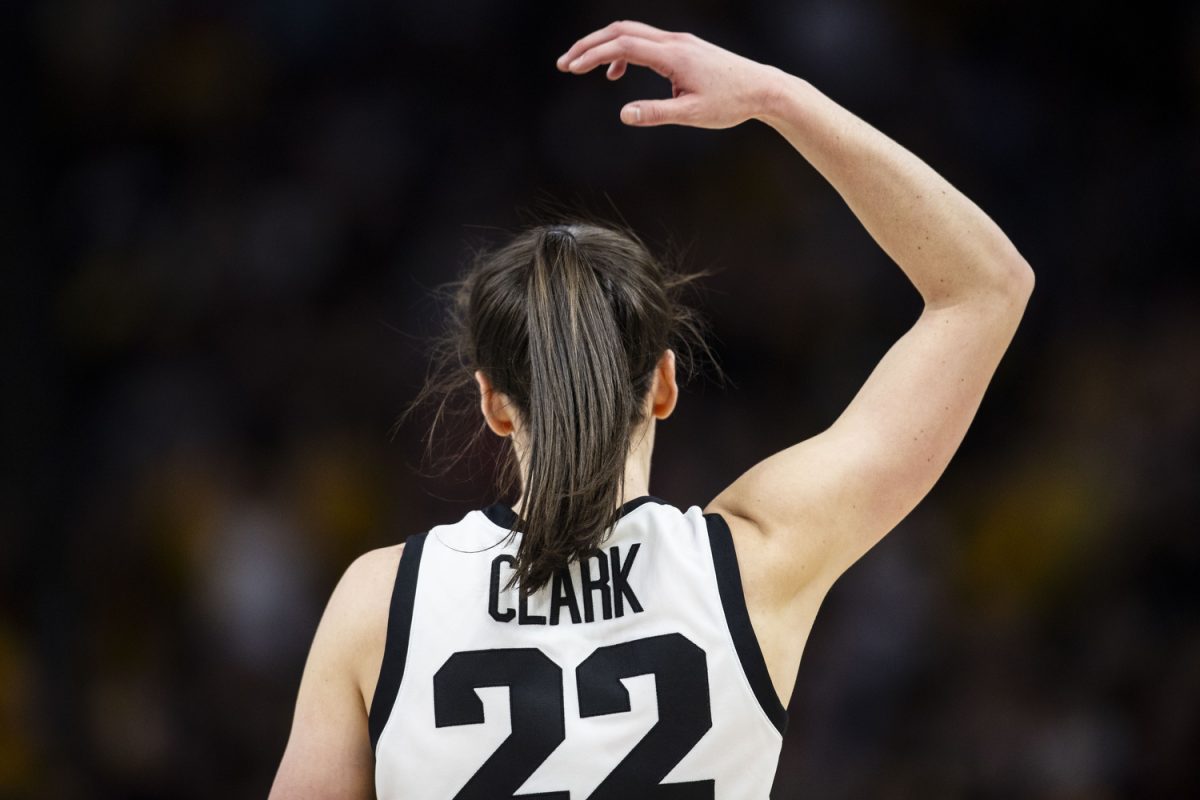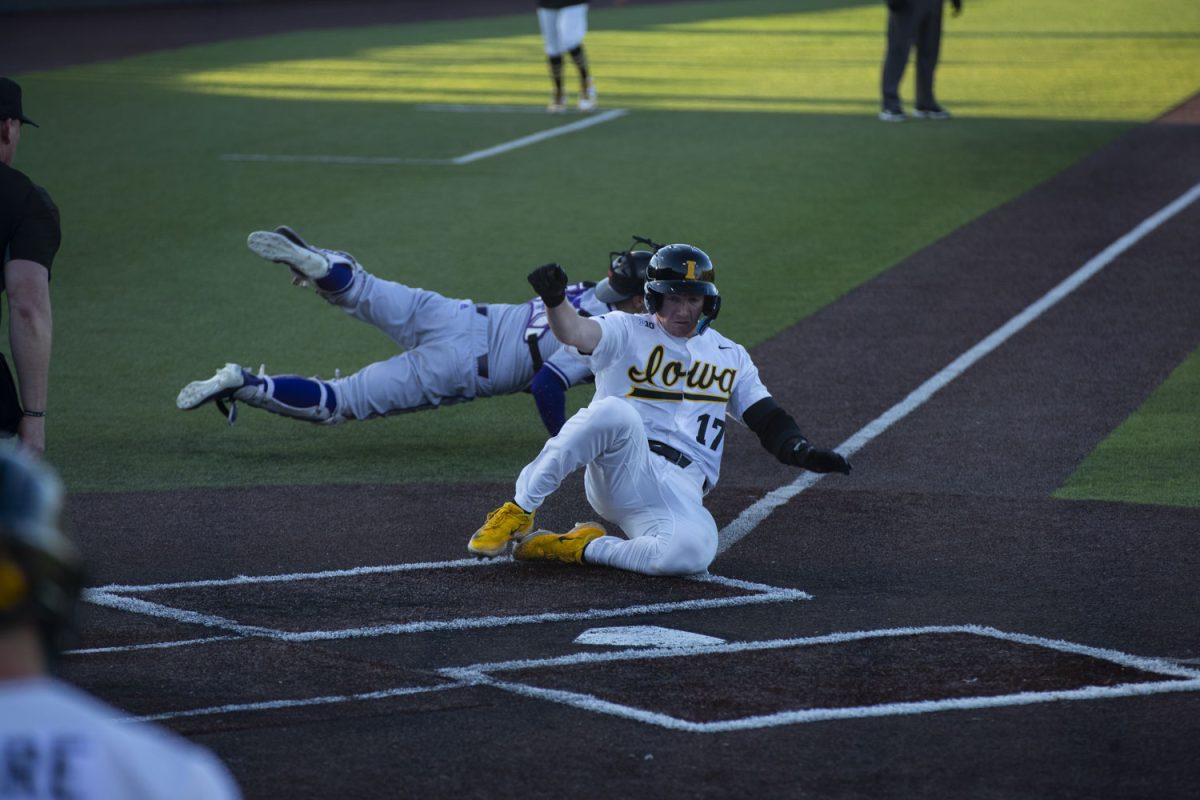Journalists have to take off their shoes before entering the Dan Gable Wrestling Complex. My leopard-print flats or heeled boots always stand out among the dozen pairs of men’s dress shoes.
And I’m proud of that.
Athletes and coaches undoubtedly notice that I’m the only girl in the room, but they hide it well. I’ve never been treated with more respect than by the athletes I’ve covered — whether they be high-school wrestlers, Iowa volleyball athletes, or professional baseball players. These men and women work hard in athletics, devote their entire lives to it, and I think they recognize that I’m doing the same, just in a different aspect of the sports world.
I am a woman working in sports journalism. I’m often the only woman sitting in press row, the only woman holding a notebook and huddling around wrestlers or football players, the only woman holding a recorder out with a manicured hand to get a good quotation. I stand out in a room full of men.
And I’m proud of that. I’m a sports girl. I live for them. I love my job, my career, my calling. I love passionately, and I love it obsessively.
But I’m not proud of being called baby. I was called baby — and honey, sweetheart, and missy — while covering the NCAA wrestling championships in the Scottrade Center in St. Louis. I probably traveled miles through the bowels of the Scottrade Center as I walked back and forth between the press row on the main floor and the locker room for interviews with the wrestlers. I was wearing low heels with my slacks and blazer, and they clicked when I walked. Because I was one of the few women present to cover the championships, I got attention — in the form of "Hey, baby" or "How are you doing, hon?" — when I passed fellow journalists or event staff or security personnel.
I’m often the only woman present at events I cover, but I’m often the only journalist to have my credentials requested for verification at the door of a press conference, the only journalist getting asked on a date — by a stranger at least twice my age — in the press box.
Women have regularly worked in sports media since the 1920s. Linda Cohn became the first full-time female sports anchor on national radio in 1987. I wasn’t even born yet when Cohn was hired by ABC, but I still find myself fighting for respect and credibility in the sports media world two decades later — just because of my sex.
The instant I walk into a room filled with male journalists, I have to prove myself. I have to demonstrate that I know what I’m doing, that I know sports inside and out even though I have long hair and makeup on my face.
But it’s OK that I have to prove myself.
Because I can.
I’ve had a journalist at the NCAA wrestling championships ask me if I was going to ask Hawkeye wrestler Matt McDonough his favorite flavor of bubble gum.
I asked McDonough how he managed to record a reversal in the final seconds of third period even though his opponent got in on a solid single leg.
I’ve had taxi drivers, my dentist, a stranger I met on the bus make remarks along the lines of, "Oh, I didn’t realize that women could be sportswriters."
But when I’ve stepped into a room to interview wrestlers or football players or any other athlete, male or female, they don’t discriminate at all.
I passed wrestlers in the halls of the Scottrade Center as well, but they never called me baby. In fact, I saw Tony Ramos at the water fountain there and do you know what he said? He said, "Hi, Molly."
Athletes always answer my questions the same as any male journalist. Coaches treat me with the same respect as they do the men. They shake my manicured hand after an interview, just as they shake the men’s hands. The men and women I interview never doubt my knowledge or credibility in the sport world.
They don’t see me as a woman — they see me as a sports journalist, as someone who loves the very concept of competition and watching people defy the limits of the human body. The athletes I interview treat me like a journalist because that’s what I am.
I’m a journalist. And a woman.
And I’m proud of that.






